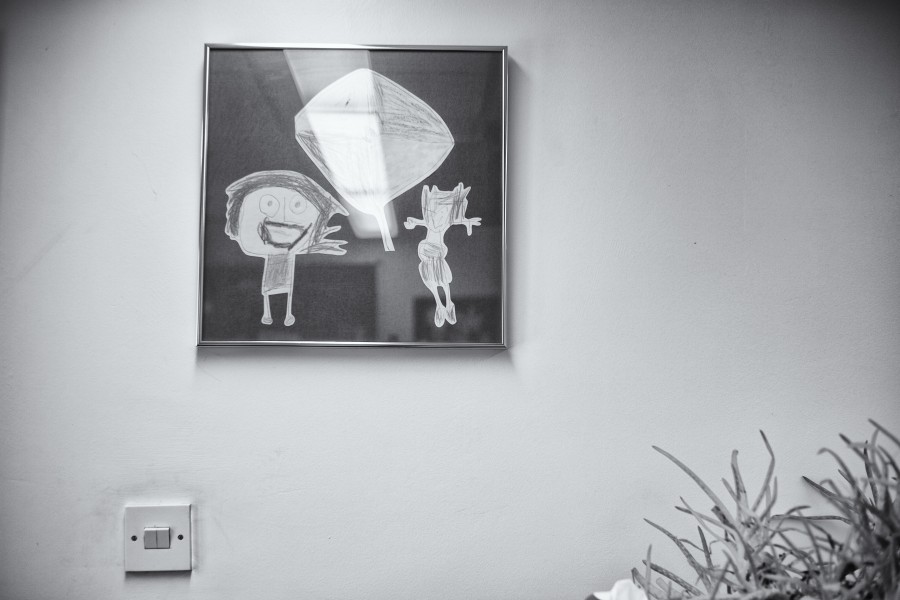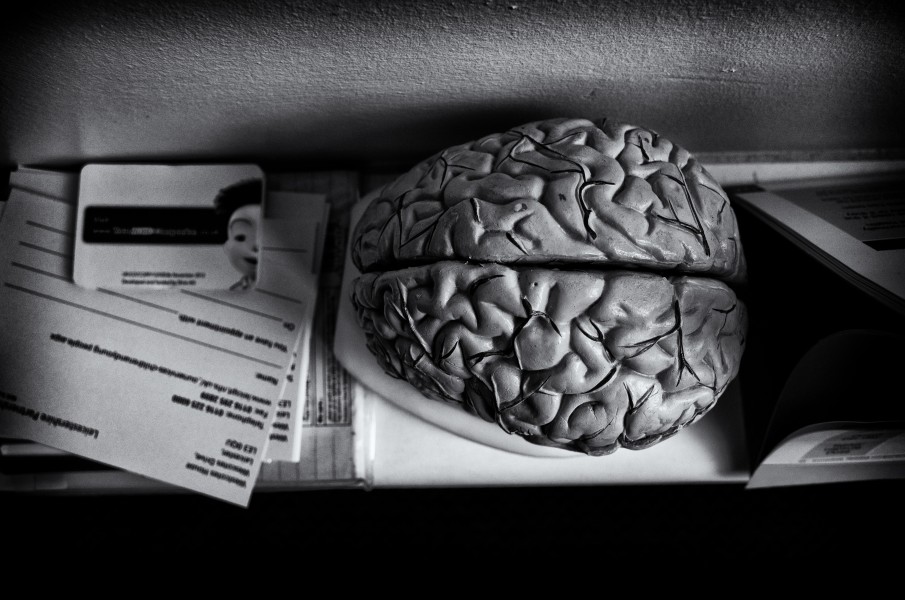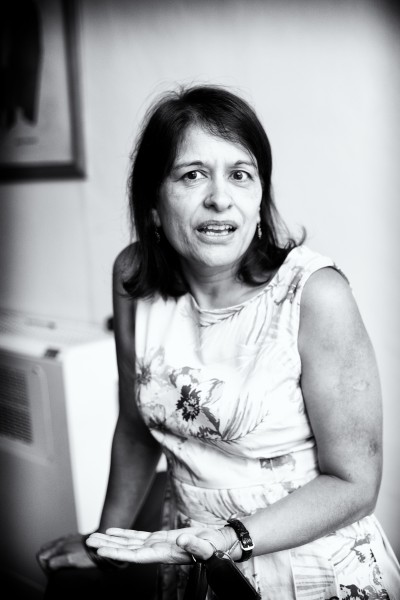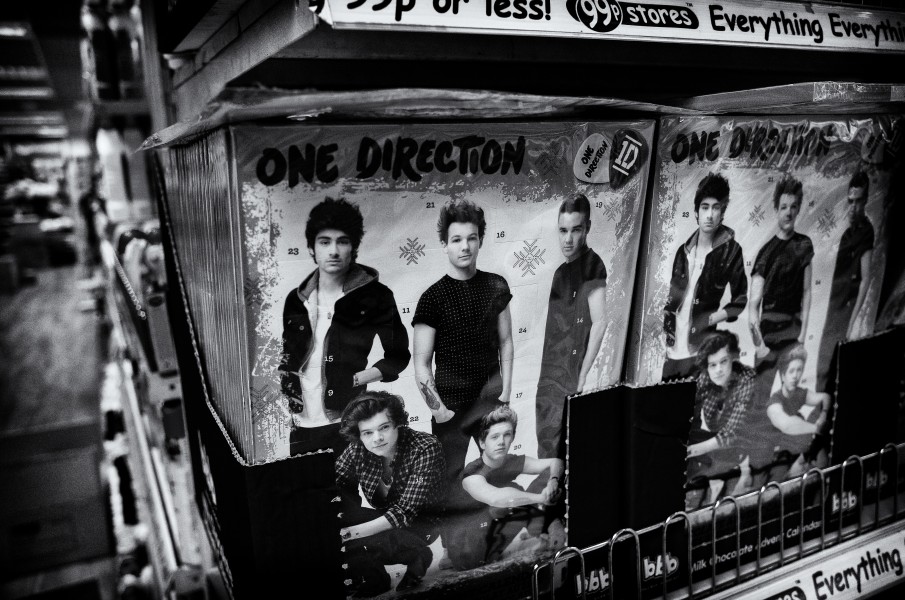Nisha: listening for truth
I happen to quite like the stroppy adolescent it has been pointed out to me that maybe I’m still stuck in that phase!
To me, [good mental health] means people being comfortable with who they are and with their life. It’s being able to do the things you want to do that keep you happy, being able to fulfil your potential, being able to enjoy being with people, being able to do things and being able to meet the challenges that life presents you with, and being able to feel comfortable.
I’ve always wanted to work with children. I’d got accepted for a paediatric post but there was time before I could take it up so I filled the time and did some psychiatry. I spent six months in psychiatry in Lincoln and really, enjoyed it. Which is bizarre, because it was difficult but it was one of those jobs where what you did made a difference to people and how you did things mattered.

I then went to do paediatrics, which is what I’d planned. During my paediatrics slot, I had a very interesting case where somebody came in with meningitis and it was really rewarding, you’d diagnosed it, you’d put all the drips up, did all the things, got all the antibiotics but what really struck me about that was that any competent doctor could have done exactly what I did and we would have had the same result, which is that the meningitis would have got better. And then I did paediatrics in the community, where I went to schools. I had a very minor case but quite a crucial one for me. There was a kid that I’d been seeing who’d been seeing doctors for ages, he’d been having lots of tummy aches and things and people were investigating why he was having tummy ache and I was chatting to him and it became quite clear that he was being bullied at school and it was about 10 minutes into the interview where you’ve seen what’s going on and you ask something different.
It struck me that in psychiatry rather than in most other medical specialities, what you do as a professional is very significant, it’s not just what you know. It’s how you carry out what you know, how you interview people. How you make them feel. The way they’ll give you information is really dependent on you as an individual. In psychiatry, I quite like that how you do something is as crucial as what it is you do. You get the opportunity to really make a difference. It also makes psychiatry more challenging because people often don’t want to hear what you’ve got to say.

It’s interesting working in psychiatry because people think that everybody can do mental health because everybody has an opinion about it. I am not a big fan of all the self-help questionnaires because actually we can all fit the symptoms. That’s one of the big problems with mental health. It’s also one of the things that makes mental health everybody’s problem in the sense that we all have times when we feel fed up with life but actually child psychiatry is incredibly difficult to do well. Parents don’t go to a heart surgeon and say ‘You know what? I think my kid’s got cardiomyopathy.’ They’ll often come to us and say ‘ I think they’ve got ADHD.’
I think adults are all equally capable of dismissing young people’s perspectives. Whether they’re parents, teachers, doctors, nurses, whatever. I think it’s important for us to remember, at the centre of it all is a kid that needs something doing. I don’t think it’s always medicalisation and labelling as a mental health problem. Actually, for me, hearing what children have to say and giving them validation is very important. People always think you have to be nice to kids. My job isn’t to be nice to them; I’m always honest with them. My job is to make sure they are assessed for any psychiatric problems, even if they don’t have any, to deal with them in a way that they remember positively. My job is [to make sure] that in 10 years’ time, the intervention that we’ve had has made a positive difference to their life. Even if it’s that they never have contact with our service again, that’s a positive intervention.

I’ll give you a very good example. We were doing clinic on Wednesday and this kid came along and everybody was saying he’s autistic. This kid had been ok up until 2 years ago. He’s…13. So everybody starts saying he’s autistic and the school wanted him to get urgently assessed because he might be autistic. We were talking and I said ‘Up until 2 years ago he was doing ok.’ Yes. Everybody should know autism is not something you get when you are 11, 12, 13. What happened was this kid, 11 years old, was arrested for something that he did. Got taken to the police cells for something that he did and locked up for 10 hours. What we were able to identify in the interview was that he was scared out of his wits and that has left him really, really anxious and nobody identified that. This was a kid who came in and he had his hood down, wouldn’t talk to me, and he gave me the finger and all that but, by the end of an hour and a half, he was on side with us and said he would accept help and talk to somebody about what had happened.
I’ve been doing this a long time but, for me, to be able to get kids to engage with you, despite their best intentions not to, is still rewarding, I still enjoy it. That, to me, says you need to keep working at what you’re doing because that’s what makes a difference to that kid. For me it was really important to say ‘I know you don’t want to be here. I know you’re pissed off with everything, but I can’t do my piece of work until you give me a clear indication of what’s going on with you’. With another kid you might have done something very different, and it’s [about] matching what you do to what the kid needs. That, for me, is a real challenge and I still enjoy that challenge. I think it’s just being nosy as well! I like hearing people’s life stories, I think people are interesting, I think being able to help people make sense of their lives is really important as well.
Lots of people are biologically driven. I haven’t got those kinds of drivers. I’ve got nieces and nephews and obviously I see their friends and things. I haven’t got kids of my own, which wasn’t a planned decision, it’s just the way life panned out. My nieces and nephews are parented very differently from how we were parented. We were brought up quite strictly, very traditional Indian background in some ways, but not in others. My Dad was very keen for us to be educated., which would have been, back then, quite unusual. Because all of my sisters and I, we’re all professionals, we’ve all got independent perspectives, the children [in our family] have had very different upbringings. My mum did work at times, but menial jobs because she wasn’t educated, a very different experience to us. I wonder if [my work’s] made us more as a family, talk about things though – I’m not sure.

I happen to do a lot of adolescent work because I enjoy them, I quite like the stroppy adolescent. A lot of my colleagues find them quite difficult and it has been pointed out to me that sometimes I can behave like a stroppy adolescent, so maybe I’m still stuck in that phase! I think I’ve always enjoyed talking to young people, I don’t get easily flustered when they swear, sometimes because my own language leaves a lot to be desired. When you were younger you might try and link in with the things you have in common with them, but the older I’ve got that just becomes farcical. I usually know enough, I have to say I work quite hard at knowing what’s out there. So I can keep in touch with them. So when they talk about things like One Direction, disgraceful, but I can have a conversation with them. I’ll say ‘seriously? That’s the taste that you’ve got?’ I think it’s because you are comfortable doing it and I use humour quite a lot with kids as well. Because we take the mickey out of people, that’s kind of standard in our family.
Parents need to be able to talk about feelings in an appropriate way with kids. I don’t know that parents are always comfortable doing that. I think that’s a challenge. I think one of the difficulties is, people feel, most advice about children comes with a layer of judgement, or there’s a value behind it. It’s also about acknowledging [that] bringing up kids is hard and you think you’ve sussed out one phase and they move onto the next phase and there’s a whole load of new stuff. I think it’s about letting kids know when they are managing and when they’re not managing. I don’t think we do enough of that with children in a way that’s normal.
So many people become parents because they don’t think about it or because they are fulfilling voids in their own lives. I had lots of conversations with colleagues about it. For me, you shouldn’t really have kids unless you are prepared to say, ‘You know what, I haven’t got a pre-destined plan for them’. That doesn’t mean you don’t have hopes and aspirations for them, but I know those hopes and aspirations are mine. If the kids aren’t what I want them to be, that doesn’t make them a bad kid, it just means they’re a different kid to what I had anticipated, but I need to let them be that.
